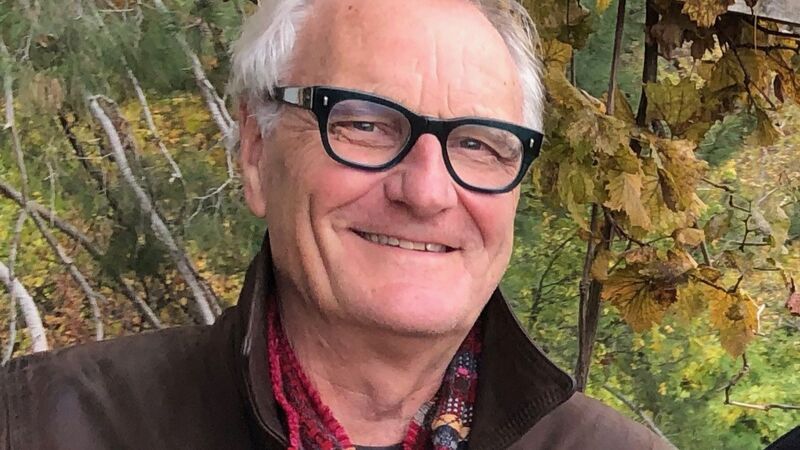You are viewing your 1 free article this month. Login to read more articles.
Carnegie Medal judges and shadowers fall for Balen’s October, October
Katya Balen discusses stories as a way to connect to and interpret the world, and her double Carnegie Medal win being ‘the greatest thing ever’.
Author Katya Balen was on holiday in rural France when she found out that she had won this year’s Yoto Carnegie Medal. She recalls: “It didn’t really sink in... I’m not particularly effusive, but I did start shaking, which was surreal.” During the phone call, she found a dead bird, a strange coincidence that mirrors the opening of her winning middle-grade novel, October, October, in which protagonist October finds a dead owl and its baby, which she takes in. The young owl’s journey parallels her own, as illustrated through Angela Harding’s images of the bird at different stages of development throughout the book.
October lives with her father in the woods until her 11th birthday, when an accident changes everything and her absent mother re-enters her life. The story was partly inspired by Balen’s father-in-law, who lives off-grid, leading her to wonder what would happen if a child grew up on the fringes of society. She also had “a vague idea of circles—the idea that the seasons come around and of the circle of life and everything being connected”.
Connection is a recurring theme in Balen’s writing, as is belonging. She also likes writing “wild, bold girls”. These elements all turn up in October, October, as October struggles to adapt to her new life in mainstream society and to bond with her mother. Balen says: “I get two sorts of feedback about October and her mother. Sometimes it’s that October is a spoiled brat and sometimes it’s that her mother is terrible. Neither of those things is true. She’s not spoilt, she is struggling to cope in a world that is strange... And her mother has not martyred herself to motherhood, but has tried to be the best mother that she can be.”
In her speech, Balen condemned the fact that not all children have access to stories due to widespread library closures. As part of her prize, she has donated £500-worth of books to her local library in South Norwood, which was recently threatened with closure
Storytelling is another key theme in the book and is something Balen highlighted in her acceptance speech, delivered at The British Library yesterday (16th June). She expands: “I remember as a child telling stories about absolutely everything because it was this wonderful way to connect to and interpret the world. So I think it makes sense that October does that as well and that the power of storytelling is explored.”
In her speech, Balen condemned the fact that not all children have access to stories due to widespread library closures. As part of her prize, she has donated £500-worth of books to her local library in South Norwood, which was recently threatened with closure.
Being shortlisted for the Carnegie has been “so joyful”, she adds. A particular highlight was scooping the Carnegie Shadowers’ Choice Award in addition to the main prize. Balen says: “Children reading and responding to your book in a visceral manner is what you write for—you’re writing for that one kid that doesn’t want to put it down, or thinks in 20 years’ time, ‘That was the book that made me read or has stayed with me’.”
Since October, October’s 2020 release, Balen has published another middle-grade novel with Bloomsbury, The Light in Everything. She has a novella coming out with Barrington Stoke in July and is currently editing her fourth novel, about two sisters who live in a children’s home and go on an adventure in the wild to find their mother. Bloomsbury will publish this and Balen’s first lower middle-grade fiction title, The Thames and Tide Club and the Secret City, next year.
Considering the impact that winning the Carnegie might have on her career, she says: “It does potentially create a level of pressure but at the same time, I wrote that book four years ago so I have moved on in so many ways. Hopefully I can just keep that momentum going forward and not think about it too much.” She describes her win as “mind-blowing and wonderful”, adding: “For me, personally, it’s the greatest thing ever. In terms of my career, I just need to keep writing good books.”















